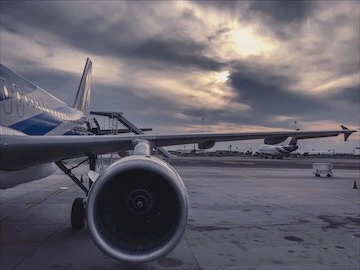What is Flight Phobia?
Flight phobia is a type of specific phobia characterized by an intense and irrational fear of flying. For some, it involves catastrophic thoughts, such as fearing a plane crash, while others experience physical symptoms like heart palpitations, excessive sweating, shortness of breath, and panic attacks. In some cases, this fear is part of a panic disorder with agoraphobia.
The most effective treatments include:
- Cognitive-Behavioral Therapy (CBT): Especially using gradual exposure techniques.
- Pharmacotherapy: The use of anti-anxiety medications like alprazolam.
The Study: Immediate and Delayed Effects of Alprazolam
Researchers at Stanford University recruited 28 women with flight phobia and divided them into two groups: one received 1 mg of alprazolam, while the other received a placebo. Both groups undertook two flights one week apart.
During the flights, the researchers measured:
- Subjective anxiety levels using self-assessment scales.
- Physical symptoms like heart palpitations and rapid breathing.
- Physiological responses via heart rate and respiratory monitoring.
Results: What Did They Find?
First Flight: Immediate Relief
The group that took alprazolam reported significantly less subjective anxiety and fewer symptoms. However, their heart rate and breathing rate increased, indicating a paradoxical physiological stress response.
Second Flight: The Rebound Effect
One week later, without medication, the results were drastic:
- 71% of the alprazolam group experienced panic attacks compared to only 7% in the placebo group.
- Heart rates rose further, reaching up to 123 bpm.
- The placebo group experienced reduced anxiety, highlighting the benefits of exposure without medication.
Why Does Alprazolam Worsen Long-term Flight Phobia?
Implications for Treating Flight Phobia
This study offers key insights for clinicians and patients:
- Exposure therapy without medication is more effective in the long run.
- Alprazolam use should be carefully considered due to its potential to worsen anxiety.
- Cognitive-behavioral therapy (CBT) remains the safest and most effective tool for treating flight phobia.
Parting Words
The study shows that while alprazolam may provide short-term relief, it is not a sustainable solution for overcoming flight phobia. Gradual exposure to flying, without medication, allows the brain to process and adapt to the fear naturally. The true solution lies not in a pill, but in building confidence and coping strategies to manage anxiety effectively.
Author: Based on the study by Frank H. Wilhelm and Walton T. Roth (Stanford University, 1997).
Author: Psicólogo José Álvarez


